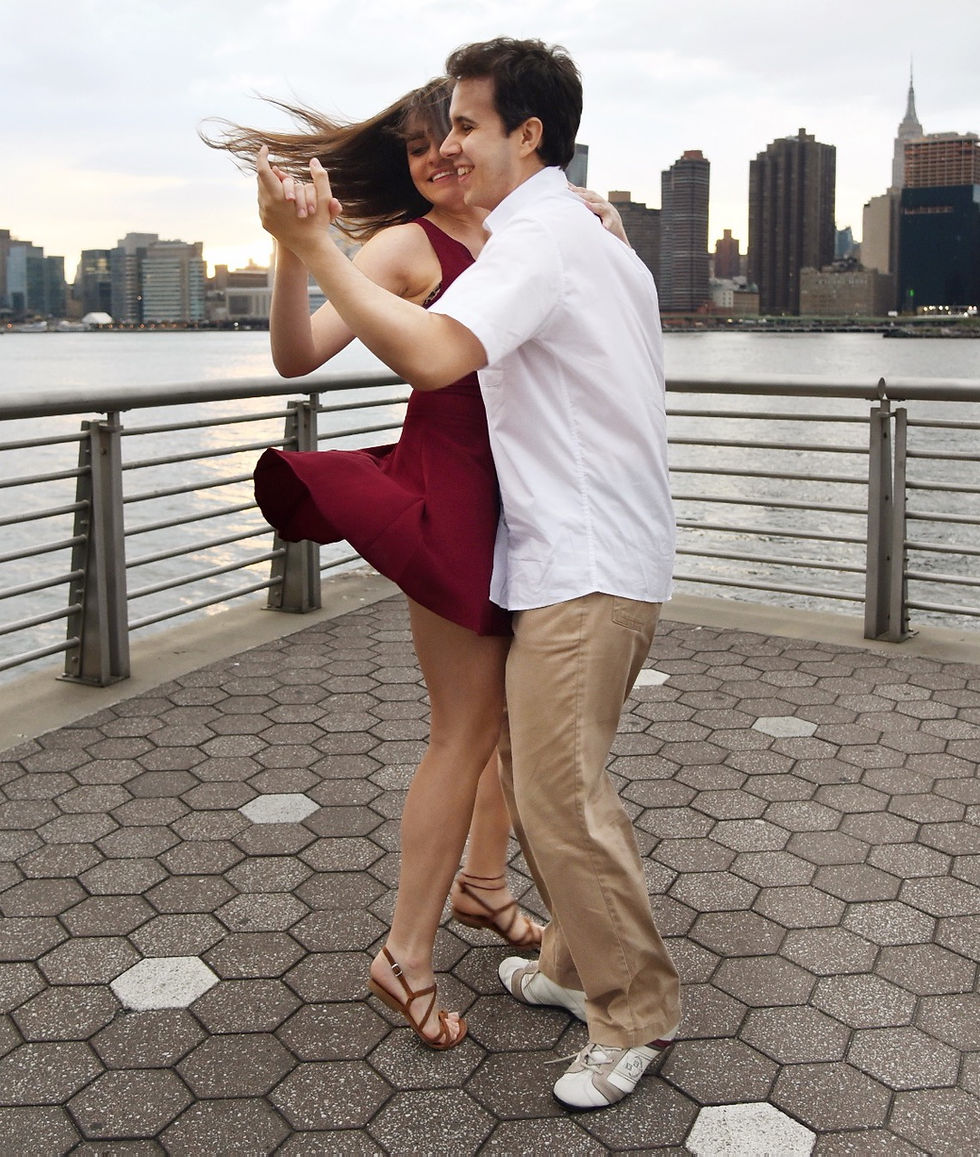How long does it take for you to know if a dance will be good or not? You may not believe it, but for me, it is clear after just a few seconds into a song with a new partner, even before we do any turn.
You may ask:
"What is your secret?"
"How can you predict so quickly the quality of a dance?"
The answer is simple: the basics.
Rhythm, embrace, and the ability to adjust are elements that showcase good dancers at first steps.

It is curious to notice that many beginners and event intermediate dancers believe they already know the basics and don't need to practice them or improve them. When I look back at my forró origins more than a decade ago when I was a beginner, I remember vividly how eager I was to learn more and more complex moves and be able to show my partners that I too was able to perform those "fancy" moves. I had the illusion that more moves would translate to a more enjoyable dance to my partner.
In reality, it doesn't really matter how many moves you do and how complex they are if the fundamentals are not good, if the embrace is uncomfortable and disconnected, if the rhythm is off and/or if the focus of the dancer is only in himself. My favorite line to repeat in my classes is: "it doesn't matter which moves you do, it is how you do them that really matters".

I recently opened an intermediate class here in New York due to the growing of our scene. The first class of its kind in the city. I must say that it is a lot of fun to be able to finally do a few more challenging and complex moves here, but if you ever come to one of my classes, be ready to also spend a good amount of time refining the basic elements of the dance. These fundamentals are what allow us to make more advanced moves in a natural and enjoyable way.
Good forró – in my opinion – is forró that flows naturally, that feels like a long friendly hug grooving to the sound of music. It is a dance that makes you want more. Having that in mind, consider that it is very likely that your first moves with a new partner, even before you show your repertoire of turns and flares, will be enough for her/him to decide if she/he will want to dance another song with you.

As an EPILOG of this blog I want to share a little history about my beginnings in forró. A memory that could be the source of embarrassment, but that I am proud to share today.
During my first year dancing forró I would go to classes and parties almost every night in my hometown Campinas (São Paulo, Brazil), but I would do much more than just the classes. Almost every night I would come home, put my headphones on, go to the kitchen (that had a big window functioning as a mirror to me) and spend hours practicing my fundamentals, dancing with an imaginary partner. It was my way of making sure that when I was dancing with a real partner I would be able to focus exclusively on her, instead of wasting energy trying to coordinate my own steps.
My neighbors could have thought I was a crazy to dance thru the night by myself in front of the 6th floor window. But so what?
I transformed from a shy forrozeiro that would only dance few songs a night into one of the favorites on the dance floor. And in the following year I was invited to be part of the Forró Brasil dance team, held at Cooperativa Brasil, one of the most important forró houses in Brazil for over a decade.
So, who wants to come practice basics with me?
ABOUT THE AUTHOR - Rafael Piccolotto de Lima is passionate about arts, a doctor of musical arts and a Latin Grammy nominee as a composer. For him all forms of expressions are somehow related. Based on that premise, his interest and work has a wide spectrum: from a tail tux at a concert hall, to the sandals at a worn-out dance floor. Born in Campinas, São Paulo - Brazil, now he lives at the Hudson waterfront, looking at the south of Manhattan.
Website: www.rafaelpdelima.com
YouTube Channel: www.youtube.com/rafaelpdelima
Instagram: www.instagram.com/rafaelpiccolottodelima/
Facebook: www.facebook.com/RafaelPiccolottodeLima/
English revision by Nikki Baffa.
